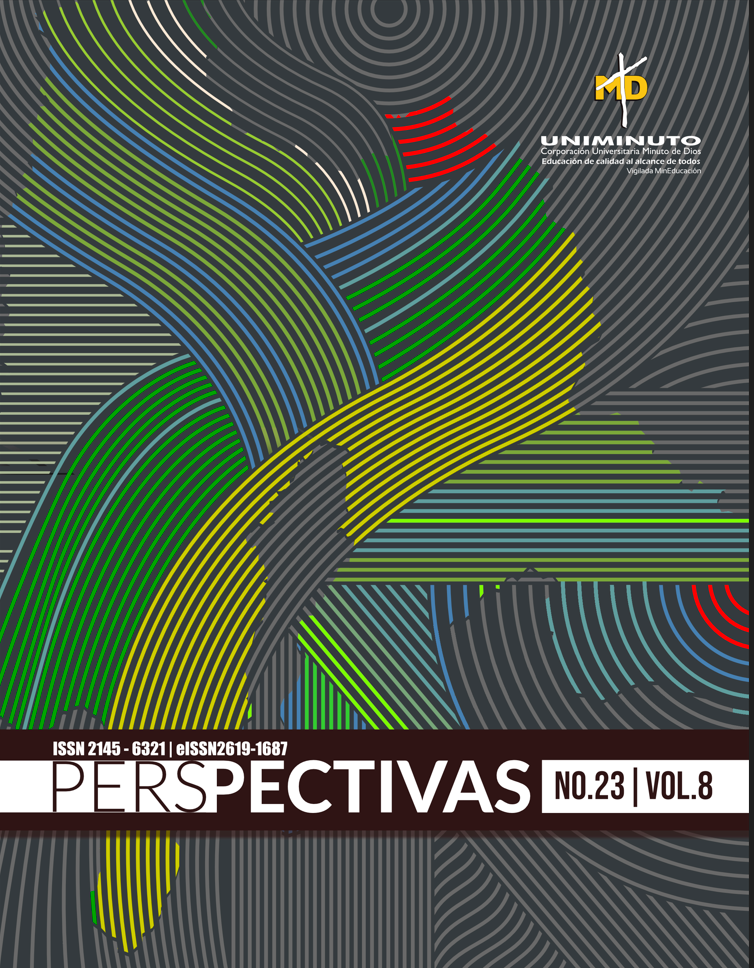Los nuevos cambios. La educación y el mundo de hoy
Barra lateral del artículo
Cómo citar
Detalles del artículo

Esta obra está bajo una licencia internacional Creative Commons Atribución 4.0.
Contenido principal del artículo
Resumen
Los cambios que trajo consigo la pandemia de la COVID19 han sido significativos, afectando todas las áreas de la vida como se conocía. Los esfuerzos para adaptarse son variados e importantes, en el caso educativo estos cambios resultan más profundos y complejos, la educación históricamente ha debido adaptarse a exigencias constantes y cambiantes por su propia razón de ser, educar para satisfacer las necesidades del entorno; hoy día un entorno global que busca individuos integrales y capacitados para el mundo y de esta manera lograr un impacto positivo para la sociedad.
Latinoamérica posee aproximadamente 156 millones de estudiantes (Naciones Unidas, 2021; CEPAL, 2020) y 68 millones de educadores afectados (Aleman Vilca, Alarcon Saravia, Monzon Alvarez & Pastor Xespe, 2021) durante y postpandemia, lo cual dilata la brecha de desigualdad para el acceso a la educación. Claramente el mundo no estaba preparado para una situación de salud mundial de este tipo y la solución para el caso de la educación fue migrar hacia la educación virtual, a distancia, remota presencial; deteriorando relaciones interpersonales (Moya et al., 2020) y la atención psicopedagógica del proceso formativo (Argandoña Mendoza et al., 2020).
El uso de plataformas digitales a las cuales no todos tenían o tienen acceso y/o conocimiento en su manejo, dificultaron aún más las cosas, obstaculizando la inclusión educativa efectiva a la cual se debe llegar (Quintana y Vida de León, 2022), trayendo consecuencias variadas como: aumento del abandono escolar forzado; estrés, depresión y ansiedad; el aprendizaje depende de los adultos del hogar; uso de múltiples plataformas digitales; otros. (Gómez-Gómez, Hijón-Neira, Santacruz-Valencia y Pérez-Marín, 2022)
Referencias
Aleman Vilca, Y., Alarcon Saravia, P. J., Monzon Alvarez, G. I., & Pastor Xespe, K. H. (2021). Education priorities in he wake of the COVID-19 Pandemic. Minerva, 2(5), 5-12. https://doi.org/10.47460/minerva.v2i5.29
Argandoña Mendoza, M., Ayón Parrales, E., García Mejía, R., Zambran-Zambrano, Y., y Barcia-Briones, M. (2020). La educación en tiempo de pandemia. Un reto Psicopedagógico para el docente. Polo del Conocimiento, 5(7), 819-848. https://dialnet.unirioja.es/servlet/articulo?codigo=9083769
CEPAL, N. (2020). La educación en tiempos de la pandemia de COVID-19. Disponible en https://repositorio.cepal.org/handle/11362/45904
Gómez-Gómez, M., Hijón-Neira, R., Santacruz-Valencia, L., & Pérez-Marín, D. (2022). Impacto del proceso de enseñanza y aprendizaje remoto de emergencia en la competencia digital y el estado de ánimo en la formación del profesorado. Education in the Knowledge Society (EKS), 23. https://doi.org/10.14201/eks.27037
Moya, J., Anguera, M. T., Fornells, E., De Armas, M., & Catalá, M. (2020). Análisis prospectivo de los cambios en las relaciones interpersonales en el contexto de la pandemia covid-19. Disponible en https://raed.academy/wp-content/uploads/2021/01/Analisis-prospectivo-del-futuro-de-las-relaciones-interpersonales-en-el-contexto-de-la-Covid-19-v.26-cmpr.pdf
Naciones Unidas. (2021). Más de 168 millones de niños pierden casi un año de escolarización debido al COVID-19. Disponible en https://news.un.org/es/story/2021/03/1489032
Quintana, J. G., & Vida de León, E. (2022). Brecha Digital Versus Inclusión en Educación Primaria. Perspectiva de las Familias Españolas. REICE: Revista Iberoamericana sobre Calidad, Eficacia y Cambio en Educación, 20(2), 85-104. https://doi.org/10.15366/reice2022.20.2.005

